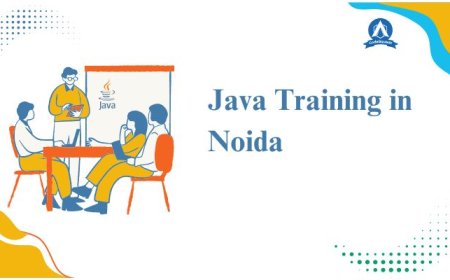Navigating the Future The Power of Strategic Planning Facilitation
I could use this space to tell you about my being a proven executive, business owner, CEO and all that other blah, blah, blah but what I really want to tell you is how much I love coaching.

In today's rapidly evolving landscape, organizations face unprecedented challenges and opportunities. To thrive, they must not only adapt but also proactively shape their future. This is where strategic planning comes into play a deliberate and systematic process of defining an organization's direction and making decisions on allocating its resources to pursue that direction. Yet, for many, the very thought of embarking on a strategic planning journey can be overwhelming, fraught with potential for conflict, inertia, or unfocused discussions. This is precisely why the role of a strategic planning facilitator is not just beneficial, but often indispensable.
A skilled facilitator acts as a neutral guide, orchestrating the complex dynamics of a strategic planning session to ensure a productive and inclusive outcome. They are not there to dictate strategy, but rather to empower the organization's leaders and stakeholders to collaboratively discover, define, and commit to their shared future.
The Value Proposition of a Strategic Planning Facilitator
So, what exactly does a facilitator bring to the table that an internal team might struggle to achieve on its own?
-
Neutrality and Objectivity: Perhaps the most significant contribution of a facilitator is their unbiased perspective. Internal teams, no matter how well-intentioned, can be influenced by pre-existing hierarchies, personal agendas, or established norms. A neutral facilitator can challenge assumptions, mediate disagreements, and ensure all voices are heard without fear of reprisal or favoritism. This fosters an environment of psychological safety, crucial for open and honest dialogue.
-
Structured Process and Expert Guidance: Strategic planning is not a haphazard brainstorming session. It requires a structured approach to move from vision to actionable plans. Experienced facilitators possess a deep understanding of various strategic planning methodologies (e.g., SWOT analysis, PESTEL, Porter's Five Forces, Balanced Scorecard). They guide the group through each stage, ensuring key questions are addressed, data is thoroughly analyzed, and discussions remain focused and productive. They know how to keep momentum, prevent tangents, and steer the group back to the core objectives.
-
Effective Communication and Conflict Resolution: Strategic planning often unearths differing opinions, competing priorities, and even underlying conflicts. A skilled facilitator is adept at managing group dynamics, fostering constructive debate, and skillfully resolving disagreements. They can employ various techniques to encourage active listening, clarify misunderstandings, and build consensus, transforming potential roadblocks into opportunities for deeper understanding and alignment.
-
Engagement and Buy-in: When individuals feel truly heard and their contributions valued, they are far more likely to commit to the resulting strategy. A facilitator actively engages all participants, using inclusive techniques that ensure everyone has an opportunity to contribute. This collaborative approach leads to a sense of shared ownership and buy-in, which is vital for successful implementation. Without strong buy-in, even the most brilliant strategy can falter.
-
Time and Resource Optimization: Attempting to facilitate your own strategic planning can be incredibly time-consuming and inefficient. Internal teams may lack the dedicated focus required, often getting pulled into day-to-day operations. A facilitator ensures the process stays on track, maximizing the value of the time invested and minimizing the risk of a drawn-out, unproductive exercise.
What Does Strategic Planning Facilitation Look Like in Practice?
A typical strategic planning facilitation process involves several key phases:
-
Pre-Planning and Discovery: The facilitator works closely with the organization's leadership to understand their current situation, desired outcomes, key stakeholders, and any specific challenges. This phase involves interviews, data gathering, and clarifying the scope and objectives of the planning session.
-
Designing the Session: Based on the discovery phase, the facilitator designs a customized agenda, selecting appropriate tools and techniques to achieve the desired outcomes. This includes determining the duration, format, and participants for the planning sessions.
-
Facilitating the Sessions: During the actual strategic planning sessions, the facilitator guides the group through various activities. This might include:
-
Vision and Mission Clarification: Helping the group articulate their aspirational future and their fundamental purpose.
-
Environmental Scan: Analyzing external opportunities and threats, as well as internal strengths and weaknesses.
-
Goal Setting: Defining clear, measurable, achievable, relevant, and time-bound (SMART) goals.
-
Strategy Formulation: Brainstorming and evaluating strategic options to achieve the goals.
-
Action Planning: Developing concrete action plans, assigning responsibilities, and setting timelines.
-
-
Documentation and Follow-up: The facilitator ensures that all key decisions, agreements, and action items are thoroughly documented. They may also provide recommendations for follow-up and monitoring the implementation of the strategic plan.
Choosing the Right Facilitator
Selecting the right strategic planning facilitator is crucial. Look for someone with:
-
Demonstrated experience in strategic planning and group facilitation.
-
Strong communication and interpersonal skills.
-
An ability to remain neutral and objective.
-
A flexible and adaptable approach to meet the unique needs of your organization.
-
A proven track record of delivering successful outcomes.
In conclusion, strategic planning facilitation is not an expense, but an investment. Its an investment in clarity, alignment, and accelerated progress towards your organization's most ambitious goals. By leveraging the expertise of a skilled facilitator, organizations can transform the often-complex journey of strategic planning into a highly productive, engaging, and ultimately, truly transformative experience, setting the stage for a thriving future.
































